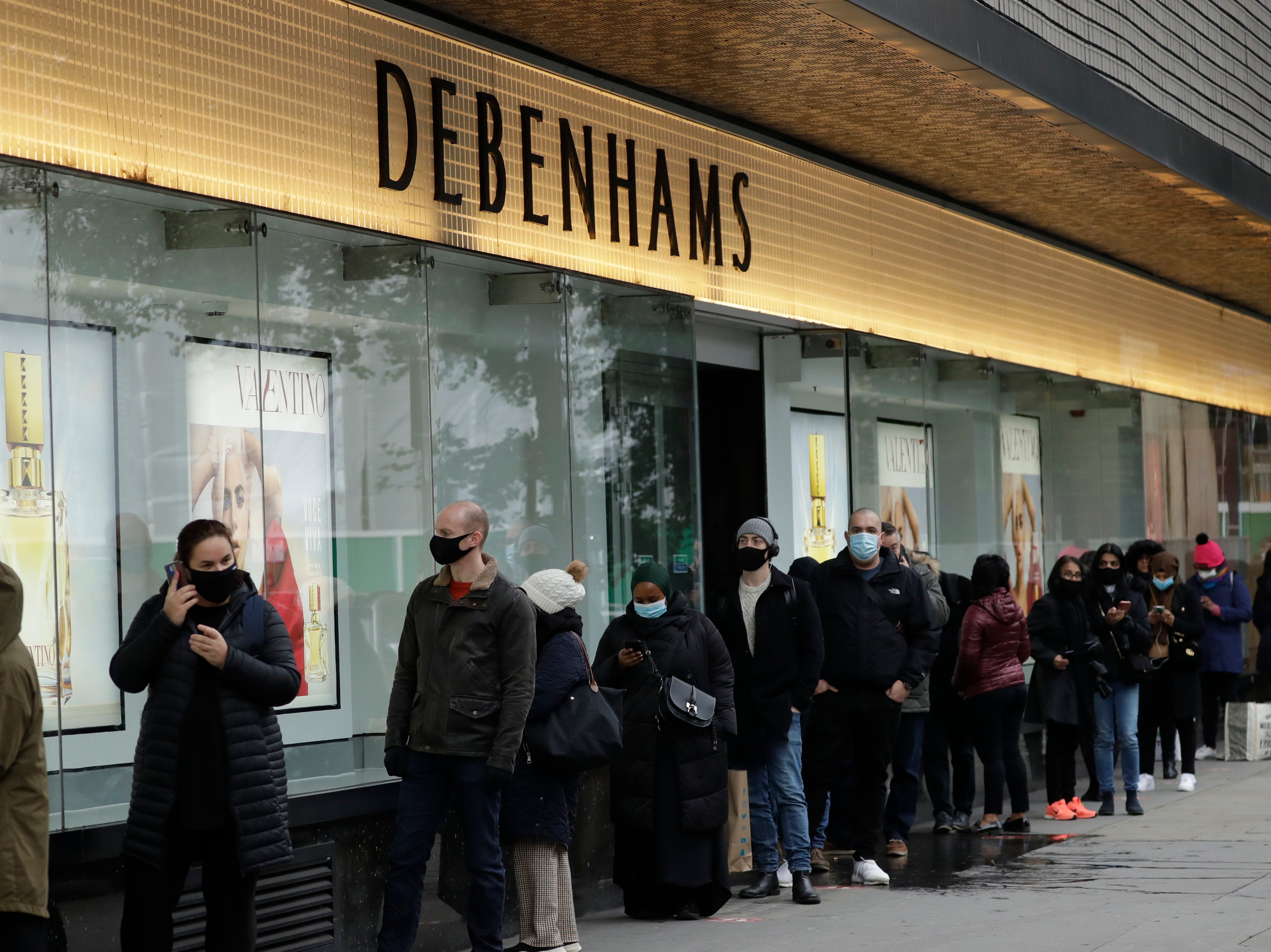We should confront an uncomfortable truth: we have too many shops
We have neglected our ‘legacy’ retailers but the fact is we are not a ‘nation of shopkeepers’, like someone once said, and some of the shops we’ll lose aren’t great, writes Chris Blackhurst


At last, the twin demise of Arcadia and Debenhams may bring us to our senses. Britain is staring at a major crisis, and no I don’t mean the pandemic. I refer to the one that has been hanging over us for a while, and the powers-that-be have done precious little about.
It’s been creeping up on us ever since people realised that staying at home, free, in the warmth and browsing on a screen at leisure was preferable to slogging into the shops, paying for dreadful public transport or for parking in places where the lifts don’t work and the stairs smell of urine, and traipsing around gloomy stores where, when you find the item you want, the chances are they don’t have your size. In fact, they often tell you to “try online”.
If that sounds too gloomy, all I will say is that I could have painted a far worse picture of boozed-up yobs, streets of litter, of cans and takeaway cartons strewn across chewing gum-adorned pavements. No, once the digital sellers got their act together and invested in fast distribution and delivery, the high street’s number was up. Today, I can order something and it can be with me in hours. In China, the standard in the big cities is now down to half an hour – that’s from the moment you click to when the box arrives. Awesome.
I remember Sir Philip Green telling me how he believed that his Topshop customers love the experience of going out on a Saturday afternoon, a posse of girls, having a good time, trying things on. They would always prefer the real thing, he said. Nothing could replace touching and feeling a fabric. Well it can Philip – if the firm can get it to you so quickly, and you can buy as many clothes as you wish in all sizes, and have your mates round at your home and easily arrange for those you don’t want to go back. It still involves having a laugh and a natter, but without any of the hassle.
For too long we’ve watched our “legacy” retailers vanish – even the use of that term smacks of death. We’ve seen major chains cut back on their branches, often to the huge detriment of the affected town or city. It’s incredible how many people suddenly bemoan the disappearance of their Marks & Spencer and now Debenhams but have not paid a visit in years, not enough of them anyway – they only miss it when it’s gone. A few of the “bricks and mortar” or “traditional” brigade – words that also carry the ring of the past – remain, but for how long? In their place, sure enough, will come charity shops, pop-ups (a phrase, conversely, that implies temporary, not attached, just passing through) and fast food restaurants, nail counters, hairdressers and estate agents. Places, in other words, that don’t encourage you to visit and stay a while.
We require a concerted, thought-through plan, one that sees the encouragement of independent shops, food stalls, arts, culture, sports, play places and great public spaces
We’re hurtling towards becoming a nation of doughnuts, and I don’t point to the edible, sweet kind – but lord knows there are enough stalls selling those, along with bags of candy floss and burgers and onions. No, these are doughnuts as in rings, those things with a gaping hole in the middle. The empty cores are our main streets and markets, once the beating hearts of our communities.
There’s talk of bringing people back into the abandoned quarters, to turn the vacant shops into accommodation. But who is going to be happy living in a building that was not designed for purpose, with no nearby greenery to speak of, and plenty of noise and traffic? The same folk who visit the area at night to go to the numerous bars. Students, that’s who. Landlords left with shuttered stores and now, thanks to Covid-19 and working from home, discarded offices are busily planning on converting them into student halls. Presumably they can get ratted in the Spoons and carry on boozing back at their gaff round the corner. How that begins to replace what has been lost is hard to fathom.
That, though, is not the responsibility of the property owners. They’ve got to make a living and who can blame for them for trying. It’s the duty of the government, national and local, to step up and fill the void. We require a concerted, thought-through plan, one that sees the encouragement of independent shops, food stalls, arts, culture, sports, play places and great public spaces – we have to create something that is breathing and alive, and attractive. Brings the cars in, make it easier for them to park, boost the bus services, and keep everything clean and tidy. Scrap the old, also no-longer-suitable for the modern era, business rates system.
We should confront a truth that is uncomfortable: we have too many shops. We don’t require them all, some must go and the chances are they were rubbish anyway. Yes, we must retrain and provide new skills for those whose jobs are lost. But simply because someone once called us a nation of shopkeepers does not oblige us to take it literally. By going together, not one then the other in the usual drip-drip manner, Arcadia and Debenhams could have done us a favour. Finally, they might have given us a long overdue wake-up call.




Join our commenting forum
Join thought-provoking conversations, follow other Independent readers and see their replies
Comments